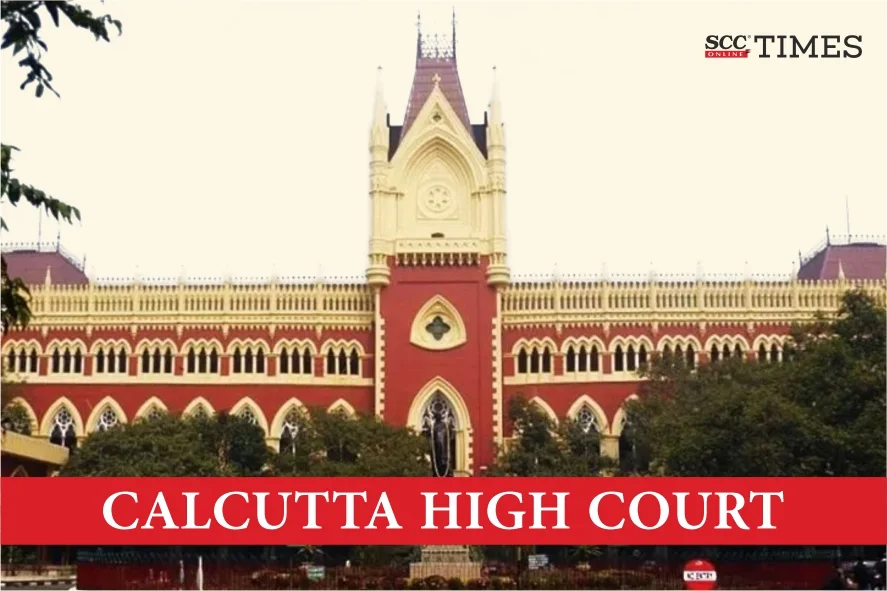Calcutta High Court: A revision application was filed by the petitioner (wife) challenging the correctness, legality and propriety of the impugned judgment dated 16-11-2016 passed by the Additional Sessions Judge that allowed the criminal revision application in part and the order passed by the 3rd Judicial Magistrate was modified by directing the Opposite Party 2 (husband) to pay a sum of Rs. 3,000 only per month as maintenance allowance to the daughter of the petitioner and set aside the maintenance allowance allowed by the Court in favour of the wife on the ground that she failed to prove that she is married wife of the Opposite Party 2. Ajay Kumar Gupta, J., sets aside the judgment by the Sessions Judge, which denied the Petitioner’s status as a legal wife and upheld the Trial Court’s award of ₹2,000 per month as maintenance to the petitioner and the enhanced maintenance of ₹3,000 per month for the child awarded by the Sessions Judge.
The wife was married in 2002, but the marriage was dissolved by mutual consent in 2005. After returning to her parental home, she developed a relationship with opposite Party 2, a moneylender, who frequented her home in connection with a loan taken by her father. The relationship culminated in a marriage ceremony at Kalighat Temple in 2006, after which the couple began living as husband and wife. However, the husband assured the wife that he would take her to his matrimonial home after convincing his parents but later abandoned her at her parental home. When the wife informed him of her pregnancy, he denied paternity of the child and refused to accept her as his wife.
The wife alleged that she was subjected to dowry demands and threats by the husband and his family and was forcibly driven out of the matrimonial home. She gave birth to a daughter in 2007, after which the husband denied marriage and refused to accept responsibility for the child. As she lacked financial means, the wife filed an application under Section 125 CrPC for maintenance for herself and her child, which was partially allowed by the Magistrate in 2015. The husband challenged this order in revision, and the Additional Sessions Judge enhanced the maintenance for the child but denied it to the wife, holding she had failed to prove her marital relationship. Aggrieved by this decision, the wife filed the present petition, asserting her entitlement to maintenance and challenging the denial of her status as the wife of husband.
The issue under consideration is whether she is entitled to any maintenance from the the husband or not.
The Court noted that it is the obligation and bound duty of the husband to maintain his wife and children, if he has sufficient means and neglects or refuses to maintain them in case wife is unable to maintain herself and her child. However, she is not entitled to maintenance on the grounds that she must not have remarried, and wife is living in adultery or that without sufficient cause she refused to live with her husband or that they are living separately by mutual consent.
The Court further noted that the meaning of the provisions of Section 125 CrPC must be understood, in the light of the scope and object of the provisions which is to prevent vagrancy and ensure that the destitute woman and neglected children are provided promptly with sustenance. Section 125 CrPC is meant to achieve a social purpose that provides speedy remedy for the supply of food, clothing and shelter to the wife and the children. Where a man and woman have been living together as husband and wife for a reasonable long period of time, strict proof of marriage should not be a pre-condition for maintenance under Section 125. The wife has to prove prima facie case of marriage so as to fulfil the true spirit and essence of the beneficial provision of the maintenance under Section 125.
The Court observed that the civil court already declared that the petitioner is legally married wife, and the female child is legitimate child. When the Civil Court declared the petitioner is legal wife and her child is legitimate, then both of them are entitled to get maintenance from the husband. Thus, the Court held that the petitioner and her daughter were entitled to maintenance from opposite party 2. It upheld the Trial Court’s award of ₹2,000 per month as maintenance to the wife and the enhanced maintenance of ₹3,000 per month for the child awarded by the Sessions Judge. The judgment by the Sessions Judge, which denied the wife’s status, was set aside, and the Trial Court’s findings were affirmed. The husband was directed to continue paying maintenance as stipulated, and the wife was given liberty to execute the order in case of non-compliance.
[S v. State of West Bengal, 2024 SCC OnLine Cal 10546, decided on 27-11-2024]
Judgment by: Justice Ajay Kumar Gupta
Advocates who appeared in this case :
For the petitioner: Mr. Subhamoy Bhattacharya, Adv. Mr. Shankar Mukherjee
For the Opposite Party 2: Mr. Apalak Basu, Adv. Mr. Steven Biswas, Adv. Ms. Sanghamitra Mridha



